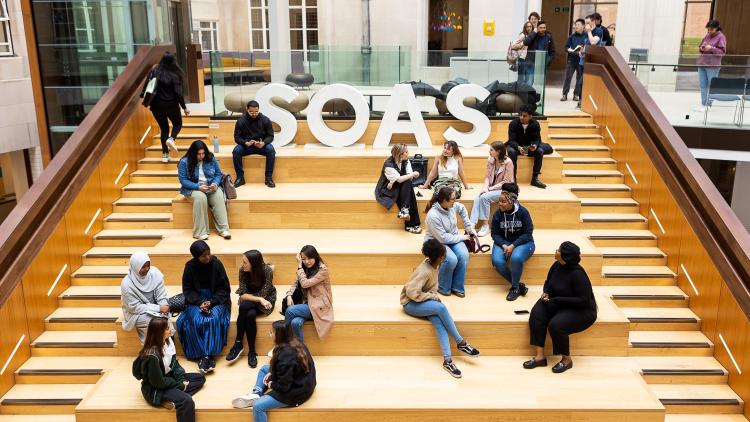Professor Volz delivers keynote speech at the 6th Emerging Market MacroEconomic workshop


SOAS Economics Professor Ulrich Volz talks about “Reversing the Vicious Circle of Debt, Underdevelopment, and Environmental Change” at the Bordeaux School of Economics.
Professor Ulrich Volz, the director of the SOAS Centre for Sustainable Finance, delivered a keynote speech at the 6th Emerging Market MacroEconomic Workshop hosted by the University of Bordeaux on 14 March 2025.
In his speech, entitled “Reversing the Vicious Circle of Debt, Underdevelopment, and Environmental Change”, Professor Volz examined how climate vulnerability and nature loss create a vicious circle in which developing countries face higher sovereign risk, rising capital costs, and decreasing fiscal space for investment. He subsequently discussed ways of enhancing investment in resilience and sustainable development to reverse this process and create a virtuous circle.
The SOAS Centre for Sustainable Finance has a strong track record in this area of research. A 2018 landmark study with the United Nations Environment Programme that was followed by several journal publications showed for the first time that climate-vulnerable developing countries have to pay a climate risk premium because of their vulnerability. A seminal study on Climate Change and Sovereign Risk published in 2020 systematically investigated how physical and transition risks can affect public finances and threaten public debt sustainability.
The SOAS Centre for Sustainable Finance has also been leading several capacity building initiatives aimed at strengthening the capabilities of ministries of finance and central banks in dealing with climate risks and scaling up climate investment. This includes the V20 Climate Prosperity Fellowship and the establishment of the University Network for Strengthening Macrofinancial Resilience to Climate and Environmental Change, the Secretariat of which is hosted by SOAS.
Researchers at the SOAS Centre for Sustainable Finance have been advising numerous governments, central banks and international organisations, including the Vulnerable Twenty (V20) Group of Ministers of Finance of the Climate Vulnerable Forum, the World Bank, the Asian Development Bank and various United Nations agencies, on how to analyse and address climate risks and enhance resilience.
Header image credit: Damian Patkowski via Unsplash.


